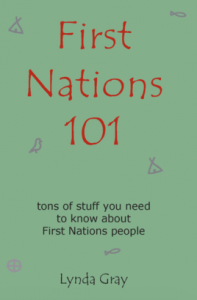As I continue on my journey exploring language and literacy development of Aboriginal children in Canadian schools, I have benefited greatly from our forum discussions and the following websites, videos and literature.
- The following video is a wonderful place to start when thinking of literacy as communication and the blend of traditional literacy and digital literacy to empower human connectedness and literacy, in any culture.
2. This document, Fostering Literacy Success for First Nations, Metis and inuit Students, reflects the importance of a bilingual approach to literacy, recognizing that many FNMI students communicate in non-standard forms of English/French “For these students, literacy success is cultivated by individualized programs that support their identity; experiences and relationships to the world”. The below link does not work here on this blog but paste into browser and it links fine!
reflects the importance of a bilingual approach to literacy, recognizing that many FNMI students communicate in non-standard forms of English/French “For these students, literacy success is cultivated by individualized programs that support their identity; experiences and relationships to the world”. The below link does not work here on this blog but paste into browser and it links fine!
3. First Nations 101 http://www.firstnations101.com/is a basic starting point for exploring the history of the First Nations People of Canada. It aims at supporting true reconciliation between First Nations and non-First Nations people. It was published in June, 2011 to celebrate National Aboriginal History month and in the Sunshine Coast School District was given to all teachers in 2013.
4.
This website http://firstnationspedagogy.ca/FNliteracy.html 
focus’ on the need for literacy development in digital media as well as traditional reading, writing and numeracy. “Although the number of literacy models that exist are extensive and sometimes confusing, researchers agree on a few key principles:
☉ Parental involvement in literacy initiatives is invaluable – the younger the child, the higher the value☉ First Nations children need instruction and literacy development in their own traditional language just as much as the mainstream language.☉ Orality is a traditional literacy skill that has endured since time immemorial in First Nations communities and continues to be an important one. Children should be encouraged to both listen to and tell stories and express themselves orally from a young age.☉ Connecting with Elders can help children and adults develop traditional literacies”
5.
Do You Speak My Language – Mi’kmaw at First Nations School in Nova Scotia is a video focusing on why young aboriginal students are losing their traditional language. It is based on interviews with elders discussing the influence of television in their communities in 1954.
Let me find my talk so I can teach you about me.
Students interviewing elders in their community end up being interviewed themselves about the importance of their traditional languages and how to preserve them for future generations.
